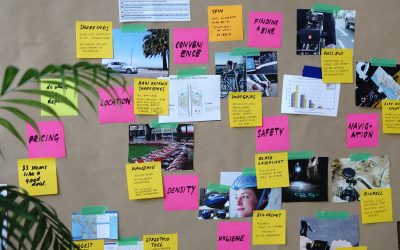A cover letter accompanies your CV when you apply for a job.
The letter is designed to act as a short introduction to you and your expertise. It should be your pitch to encourage an employer to consider your CV.
A cover letter should be professional and eye-catching. Recruiters will likely receive a number of applications for the same position, so make your cover letter unique – don’t just repeat what you’ve mentioned in your CV.
You should write a new cover letter for each job you apply for, just as you would create a tailored CV.
Unless otherwise stated in the job description, you should include a cover letter with every job application. Below, we’ve highlighted some top tips for a job-winning cover letter:
Double check the details
Before you start your letter, make sure you have all of the contact details right for the letter. Do you have the correct job title, contact, email address etc?
Quality over quantity
Keep your cover letter short and well-crafted. This will be much more powerful than pages of rambling detail. One side of A4 is the preferred amount. Remember, it’s not how much you write, it’s what you tell them that matters- particularly how relevant it is to the job you are applying for.
Professional format
Recruiters will expect a professionally formatted cover letter, so don’t do anything less than this, unless stated otherwise.
Avoid copying from your CV
It’s very easy to echo the same points you’ve made on your CV, but that isn’t what recruiters are looking for. If anything, this can turn them off – they won’t be happy about reading the same information twice over.
You have limited space across your CV and cover letter to stand out to employers, so don’t waste your time and theirs by duplicating information.
Give evidence
Made any bold statements in your CV? Well, your cover letter is the perfect platform to justify those statements. If you claim you have a particular skills, give examples on your cover letter to prove that you have experience – demonstrate how successfully you implemented these skills, and show the recruiter your worth.
Write tailored cover letters
Just like your CV, cover letters should be tailored to the role. Avoid going off on a tangent, and keep the letter specific to the skills/role the recruiter is hiring for. There shouldn’t be anything on your cover letter the deviates from what they are looking for on their job advert.
For it to stand out, you’ll need some detail in there specific to the company and the role, and why you think you are a perfect fit.
Tell them what you can offer
Your cover letter should be written in a way that highlights what you can bring to the role and the company, not what they can offer you. We can all find it a little strange boasting our achievements and experience, but that’s exactly what a cover letter is for – just keep it concise and applicable to the job description.
Hold the salary talk
Salary can be discussed further down the line, but it’s not relevant when you apply. Leave it out and if it’s really important, you can have the discussion at interview stage, when the recruiter is actually considering hiring you.
Positive sign off
End your cover letter on a confident, positive note. Indicate your eagerness to discuss the role further, and make it obvious that you are interested. This will go down well with recruiters, especially if you can tailor it to their company.
Proofread…and proofread again
Think you’re proofed your cover letter? Great…now do it again. Because this will be in the format of a professional letter, you should make every effort to ensure there are no mistakes or sticky bits that recruiters will find hard to read. Ask a friend or family member to proofread the letter for you, before you send it – trust us, you’ll thank us for stressing this point so strongly.
Now your cover letter is sorted, need some inspiration for your CV? Download our available CV templates below (they’re tailored to specific marketing roles!) to get started!
Need more help with your CV? Download our helpful CV guide for marketers below:
Promotions Job Description
It's one of the most glamorous jobs in marketing - promotions jobs can be a lot of fun and of great benefit to a business looking to make an impression on the market. The job can change on a daily basis, from coordinating PR strategies to...
Marketing PR Jobs – A Guide
Marketing PR jobs have the main aim of managing the reputations of organisations. Working in PR can be for an organisation directly or for an agency. Some agencies will specialise in one particular sector and are experts on topics such as...
Market Research Jobs Guide
Market research jobs are in place to find out certain consumer behaviours in order to improve sales of a product or service. The data that people in marketing research jobs collect from a range of people assists in specific promotion for...
Market Analyst Jobs – Key Skills
Market Analyst jobs will usually require the collection and analysis of data to detail and find out about product and service markets (both potential and existing ones). It is the responsibility of the people in marketing analysis jobs to scope...
A Guide to Graduate Marketing Jobs
Graduate jobs in marketing normally entail a large number of marketing aspects. Areas that trainees would work in include: planning; promotion; advertising; graduate PR jobs; product development; sponsorship; research; distribution. These jobs...
Marketing Analyst Job Description
A marketing analyst is responsible for providing information regarding customers markets and competitors. An ideal candidate for the job will have experience in the field of planning and managing research projects. Responsibilities of a...





